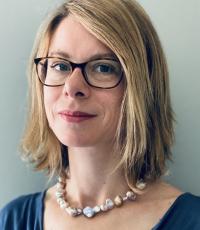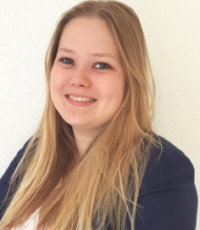SIG 05 - Learning and Development in Early Childhood
Coordinators


Mission statement
This SIG is concerned with the learning and development from birth to the age of eight years old. We recognize that learning and development takes place in formal and informal contexts (e. g. preschools, schools, home, daycare, community). Because of this reason the SIG welcomes researchers who are studying aspects of learning and development in any of the previous contexts.
We are concerned about the growth in educational reforms across Europe in the early years. Providing adequate learning environments during kindergarten and preschool years is pivotal since here foundations are laid for young children's development in various academic domains. Similarly, there is growing attention and evidence for the importance of learning within the home. Given the realm of children's informal learning experiences before and during preschool, research on children's early development is vital for the understanding of adequate learning environments. To ensure a high quality of institutional or informal settings for young children, it is important to rely on empirical research in areas such as the role of play and pedagogy in relation to cognitive and motivational outcomes, the social relationships between the young child and the teacher, guardian or educator as well as his/or her peers. Also, the cooperation between educational settings, child care and the parents, and the role of classroom management, instructional quality and learning materials are essential. Especially, research questions in the area of pre-/school effectiveness, social inclusion, and teaching and learning processes need to be applied to the field of early childhood care and education since institutionally organized education has to adapt to the specific developmental needs of young children.
It is well-known that systems of early education and pedagogical concepts differ between and within European countries and other westernised/transition countries. However, until now, not much is known on the (differential) effects of home/preschool/school settings on learning outcomes. It is important to understand how different structures and educational concepts influence the learning of young children and their development. More comparative research is needed to understand similarities and differences on early learning (within formal and informal contexts) and their positive and negative effects on development.
By founding the special interest group "Learning and development in early childhood" we intend to foster international collaboration and exchange of ideas, research-based concepts and methods among researchers from both the educational and developmental sciences. Our aim is to promote the importance of adequate educational programs for young children and create a forum for rigorous, evidence-based discussion of early childhood research.
We are concerned about the growth in educational reforms across Europe in the early years. Providing adequate learning environments during kindergarten and preschool years is pivotal since here foundations are laid for young children's development in various academic domains. Similarly, there is growing attention and evidence for the importance of learning within the home. Given the realm of children's informal learning experiences before and during preschool, research on children's early development is vital for the understanding of adequate learning environments. To ensure a high quality of institutional or informal settings for young children, it is important to rely on empirical research in areas such as the role of play and pedagogy in relation to cognitive and motivational outcomes, the social relationships between the young child and the teacher, guardian or educator as well as his/or her peers. Also, the cooperation between educational settings, child care and the parents, and the role of classroom management, instructional quality and learning materials are essential. Especially, research questions in the area of pre-/school effectiveness, social inclusion, and teaching and learning processes need to be applied to the field of early childhood care and education since institutionally organized education has to adapt to the specific developmental needs of young children.
It is well-known that systems of early education and pedagogical concepts differ between and within European countries and other westernised/transition countries. However, until now, not much is known on the (differential) effects of home/preschool/school settings on learning outcomes. It is important to understand how different structures and educational concepts influence the learning of young children and their development. More comparative research is needed to understand similarities and differences on early learning (within formal and informal contexts) and their positive and negative effects on development.
By founding the special interest group "Learning and development in early childhood" we intend to foster international collaboration and exchange of ideas, research-based concepts and methods among researchers from both the educational and developmental sciences. Our aim is to promote the importance of adequate educational programs for young children and create a forum for rigorous, evidence-based discussion of early childhood research.
Activities
SIG 5 Biennial Conference 2022
Theme
“Changing Times in ECEC: New Opportunities for Fostering Development and Improving Sustainability”
Dates
12th – 14th July 2022
Place
Utrecht, The Netherlands
